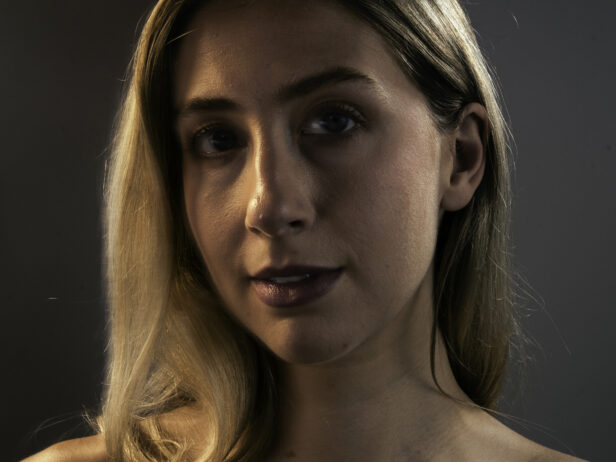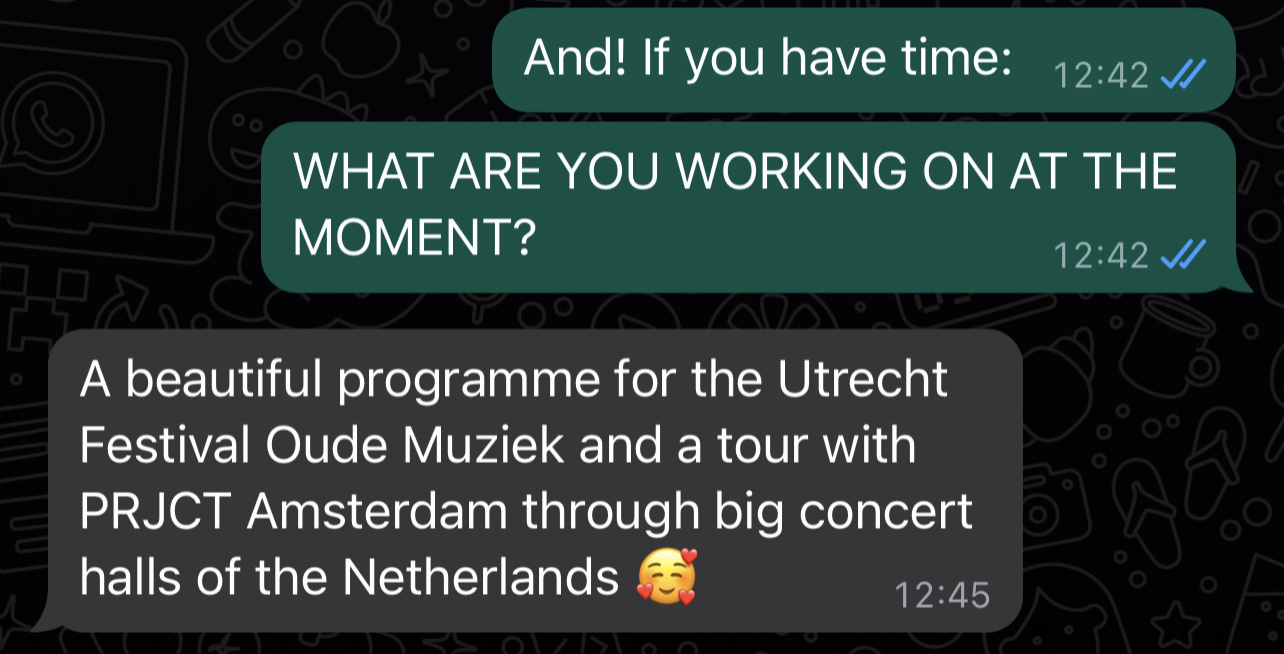
ELISABETH HETHERINGTON
Elisabeth Hetherington is an award winning Canadian soprano who moved from Canada to The Netherlands in 2016. She has established herself as a stand out up-and-coming performer and interpreter of early, contemporary and modern repertoire. Elisabeth is an especially passionate advocate for multidisciplinary performance. Drawing on her background as a modern dancer, Elisabeth has worked with composers and choreographers to develop and create works that display a confluence of physicality and musicality.
In addition to performing, Elisabeth has received a great deal of attention for her research in the field of Original Pronunciation of Elizabethan English. She has become a sought-after clinician on the subject, giving masterclasses in conservatories around the world.
_>
As a vocalist, I live with my voice every second of every day. While other musicians can make use of a different instruments to suit the appropriate period, vocalists must become chameleonic – transforming ourselves, and therefore our instrument, into the perfect fit for the repertoire. Herein lies the virtuosity of the 21st century vocalist: how one can remain true to one’s technique, one’s musicality and self-expression while adapting to different repertoires. This challenge is something that I have spent the past five years exploring and growing into.
–How can you best describe your portfolio/repertoire?
My vision of my position in the field is one of an interpreter of both old and new music, a programmer enthusiastic about tying together seemingly opposing styles, and a performer who can weave high level music and visual elements to create touching and compelling performances.
–What are the similarities between old and new music?
Throughout history music was created with the express purpose of influencing our physical and emotional state – so much so that pre 18th it was believed that the intensity of a performer’s interpretation could truly impact the overall physical and mental health of their captive audience. While modern medicine has explained away these notions, I do still believe that through our performances, we have the potential to stir and uncover the emotions of the listener in ways they didn’t know possible. My interpretation of historical music takes on a personal approach: to push through any preconceived boundaries in order to discover the extreme, sometimes rough edges of the music and hopefully, touch the listener on an emotional level.
Using extremes in colour, dynamics, texture and timing to elicit genuine emotional and even physical responses from the listeners, I feel that contemporary composers are in essence writing with the same purpose as their historical predecessors. There is an undeniable link between contemporary and historical performance. In my research and experiences, there are countless similarities between the requests found in historical treatises to those found in the forwards of contemporary works: colour and quality of the voice, sensibility of the performer, attention to small details, and ability and willingness to express not only what is beautiful, but what is painful and ugly (to name a few).
–What is a stand out memory from your performing career?
One of the strongest performance memories would be a project I did with two traditional Iranian musicians (a singer and a tar player) a few years ago. We had been working the whole week towards on a very complicated new piece of music and this was at a time in my life when I very critical of myself as a singer and performer. During the premiere, something went wrong and the singer turned to me with a huge smile, laughed, and exuded so much joy that I realised (or perhaps was reminded) that music is to be enjoyed and how lucky I felt to be able to perform for a living.
–What is something you are learning?
Singing is really interesting because you have to be the master of controlled tension. Too much and your voice will be strained and tight, too little and your instrument won’t be supported. In addition, as you get older, your voice is always changing and developing along with your body, so you are always becoming reacquainted with yourself. I always thought that at a certain point, I would “know how to sing”, but I feel like I am constantly having to remaster my voice. I think that maintaining a curiosity mindset is vital.
–If you would be reincarnated as some other plant or animal what would it be?
Beaver / they have no plan / they only dam
Photos by Roman Ermolaev
by WOW




